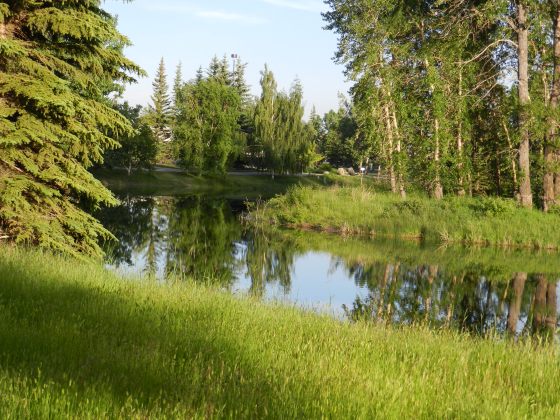
Reflection:
Sermon – April 17th 2016
4th Sunday of Easter
By Roland Legge
Acts 9:36-43
Psalm 23
John 10:22-30
Have you ever met a shepherd? Today most of us have never met a shepherd and don’t know what their life would have been like. But in Jesus day shepherds would have been a common sight and thus the followers of Jesus would have known exactly what the metaphor meant. So what does the shepherd metaphor mean in the Biblical story? Do you know?
Shepherds were poor people living on the land tending their sheep. It was not an easy job. I am sure it was monotonous, but also very dangerous. I quote now from Sandy Simpson:
Middle eastern cultures understood what shepherding was all about. It was about feeding the lambs and the sheep, bringing them to good pasture lands and water, grooming and clipping them, delivering new lambs, leading them and teaching them to stay together, going off after the wandering lost ones, and protecting the sheep in the field and in the fold.
http://www.deceptioninthechurch.com/agoodshepherd.html
There were times when the shepherd would risk their life to protect their flock. They new when there was danger just by the way the animals were behaving because they new their flocks well.
For the early Christians Jesus began to be seen as the Good Shepherd. This was not a job for wimps. It was going to take great dedication, love, generosity, the ability to teach, the courage to protect and the willingness to discipline those who have fallen off the track. Jesus took seriously his call to guide, challenge, inspire, encourage, and love, showing us the path to new life. He new it was risky and would likely lead to his death on the Cross.
In Psalm 23 the Good Shepherd is one in the same as the Holy Spirit. To invite the Spirit to journey with us we need to be fully tuned to the wisdom that is within us and around us. When we have that intimate connection with Spirit we will always find the courage to do what we have been called to do no matter how much our lives may be put at risk. It doesn’t mean we won’t feel fear, but we won’t let that fear block us from doing what needs to be done. We will also have that inner knowing that we are not alone. I think Peter finally discovered this after the death and resurrection of Jesus.
Now when bumbling Peter arrives in the Book of Acts, after many struggles to find his faith and courage, finds his Christ self. His true self. He finds that one of his faithful disciples, Tabitha is dead. Tradition says that Tabitha was an independent women of means who supported the ministry of Jesus. Peter was called to her home and found her lying there dead. He immediately calls upon her to get up. There is no debating of what to do. He inwardly new what he needed to do. Do you have that kind of inward knowing?
How do we come that place of inner knowing? Each of us need to find a way to become present enough to feel the power of the Spirit through our bodies, each other and the whole creation. The Good News is that it is available to all of us.
We come to that inner knowing through intentional prayer and meditation. First we can start by taking time out of our busy lives to quiet our minds and open our hearts. But we don’t just have to sit and do nothing. If we start with an intention of prayerful openness and love, anything we do such as cooking, gardening, reading, writing, singing, creating pottery, making wine and so much more can be a form of prayer. This can bring you joy and hope? I invite you to consider what forms of spiritual practise helps you to quiet your mind?
Recently, I have been learning to be more present in the moment. I have been learning to quiet my mind. While I may not always be successful in doing this I have become much better at it. I have done this through meditation, getting Life Coaching, going for massage, body work, eating better, exercising and being much more conscious of what is going on in my head. Up to a few years ago my mind was more like a three ring circus that would never stop. The Spirit would always get a busy signal when it was trying to reach me and now it is often able to get my attention.
I have avoided doing a lot of things the Spirit was calling upon me to do because I was too fearful of change. I was fearful of not having enough money. I was fearful of not having a big enough of RRSP. I was fearful of making mistakes. I was fearful at failing at a new career. But for the most part this has gone and I am finally ready to broaden my calling to ministry by reaching out too many people outside the church through my calling to be a Life Coach. I am not worried and I am feeling good. Are you afraid of making changes in your life? I invite you to seek out the wisdom of the Spirit.
None of this can experience transformation without some form of community. I have a number of groups of people who have become family to me that have and continue to enrich my life. I would not be where I am today without them. My wider family is the church, my Enneagram community and the many other people I know. For me God is working its love through these amazing people. I would not be where I am today without them. Who are those people for you in your lives?
Our churches can be places where we come together to shepherd each other and be a sign of the promised New Jerusalem. They can be places to challenge each other into being who we can be. They can be places to support each other through the rough times. They can be places to build strong relationships that will give you the courage to face the many adversities that are thrown our way. They can come places where we welcome all those who are on the fringes of our society. It can be the place where love is felt, experienced and celebrated, especially among the poor, the hungry, the mentally ill, the oppressed and the physically infirm. Churches who are open to the Holy Spirit just naturally do this.
Let it be so!

